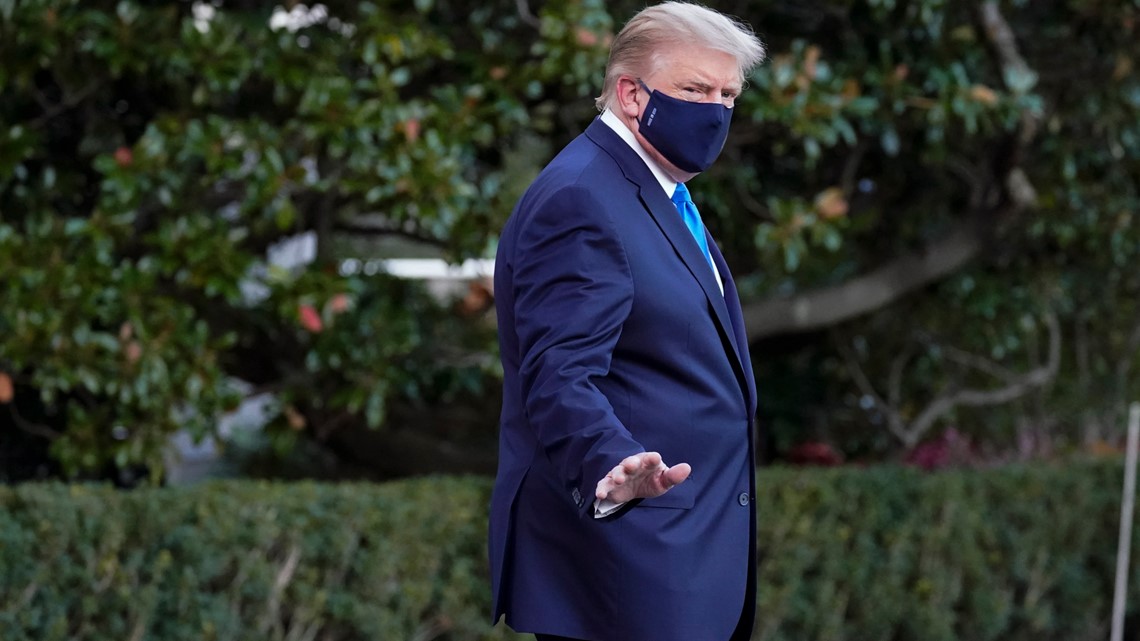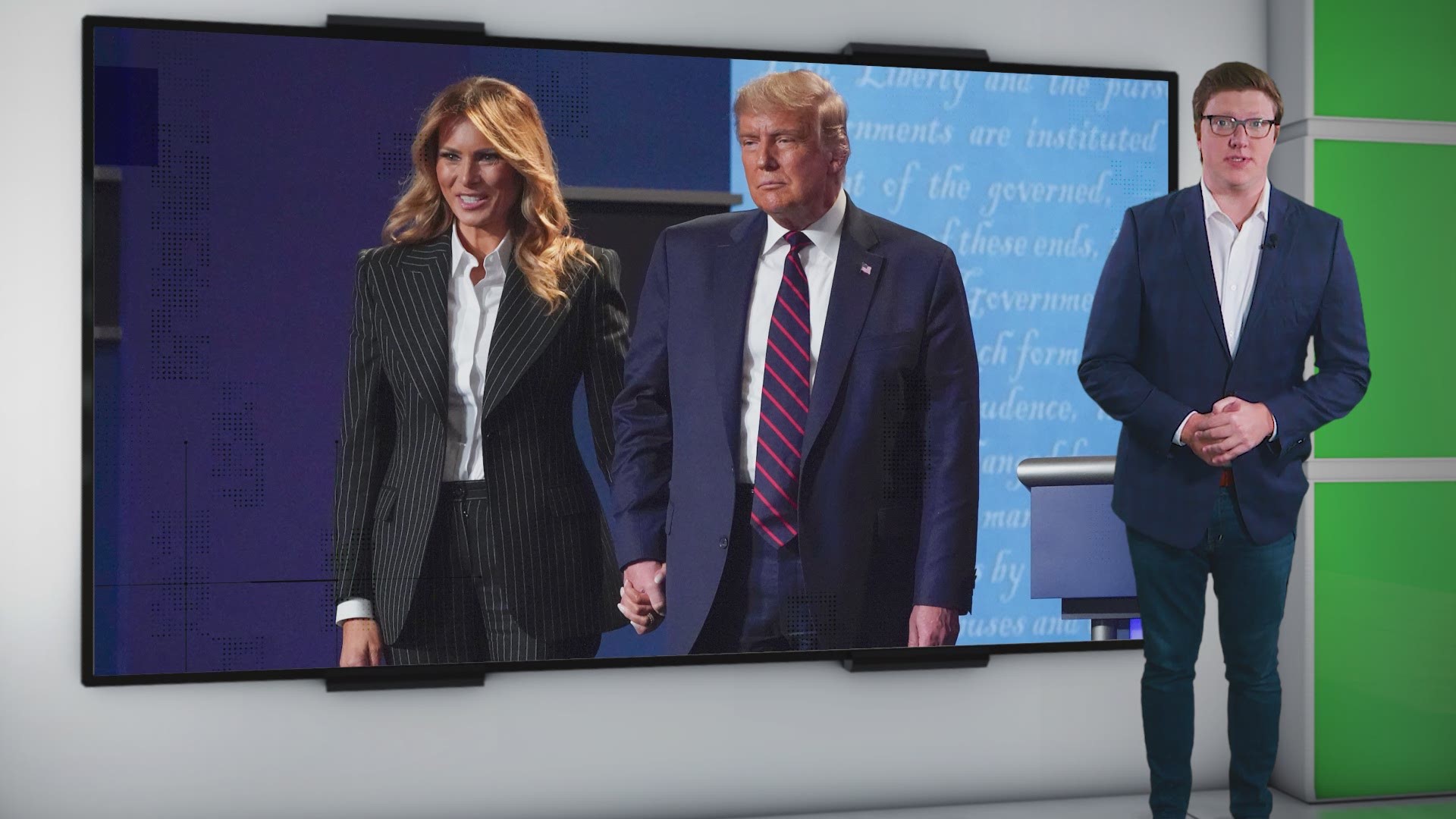President Donald Trump announced on Twitter early Friday morning that he and First Lady Melania Trump had tested positive for COVID-19. Later Friday morning Sen. Mike Lee, R-Utah, who is on the Senate Judiciary Committee, announced that he also tested positive for COVID-19.
Given that the United States is just a month away from Election Day, and Senate hearings on Trump's Supreme Court nominee Amy Coney Barrett are set to begin this month, there are a lot of questions on how these announcements affect both the election and the judicial nomination.
The VERIFY team broke down the answers to a few of those questions.
Can the election be delayed if the president is sick?
Yes, that's possible, but the decision would have to come from both chambers of Congress.
Article II Section 1 of the U.S. Constitution says that Congress may change the day for Election Day and the day when the electors may submit their votes. That day will be the same for all of the United States.
The law sets Election Day as the first Tuesday following the first Monday of November. That means Congress, both the House of Representatives and the Senate, would have to pass a new law before Election Day in order for that to happen.
Regardless, the 20th Amendment to the Constitution says that the president's term ends on January 20 -- no matter what. So even if the election was delayed, the new date would have to happen before Jan 20.
What happens if a candidate drops out this late in the race?
It depends on when the candidate drops out.
If it happens between now and Election Day, both the Democratic National Committee and Republican National Committee say in their bylaws that they would select a new nominee for their party. However, that doesn't guarantee the new candidate will make it onto the ballot in every state given that it's so late in the race.
Should a candidate drop out between Election Day and December 14 when the Electoral College electors cast their votes, the electors decide what to do with their votes. That's according to John Fortier of the Bipartisan Policy Center.
In the case that a candidate drops out between December 14 and Inauguration Day, it's up to Congress to decide what happens to the votes, Fortier said.
A candidate hasn't dropped out late in a race since 1972 when Thomas Eagleton, the running mate to Democratic Nominee George McGovern, resigned. However, he was the vice presidential candidate and he dropped out in August rather than October or later.
What will happen to the debates? Are they canceled?
The Commission of Presidential Debates runs the debates between the presidential nominees and their running mates.
An official with the commission said Friday that the Oct. 7 vice presidential debate between Vice President Mike Pence and Sen. Kamala Harris currently remains set to go on as scheduled.
Its schedule also still lists October 15 as the next debate night between Trump and former Vice President Joe Biden.
The Centers for Disease Control and Prevention's guidelines say that a person should isolate for at least 10 days after they first test positive and should continue doing so until it's been at least 24 hours with no fever and if other symptoms are improving.
The next presidential debate is more than 10 days away. So it's possible that the next debates take place as scheduled, but the Commission of Presidential Debates also have the authority to postpone or cancel any debates if they deem it necessary.
Can Sen. Lee vote on the Supreme Court nomination remotely if he's still isolated?
Yes, Lee can vote on Senate Judiciary Committee votes via "proxy." But Lee currently plans to be back in time to vote in person.
The Senate Judiciary Committee, which Mike Lee sits on, is set to begin hearings on Justice Amy Coney Barrett's nomination October 12. It's possible that Lee could still be in isolation by that time if his fever remains.
The Senate rules, which refer to remote voting as "voting by proxy," say that it's up to the individual committees' rules as to whether or not such voting is allowed. The Senate Judiciary Committee's rules do allow for proxy voting.
However, Lee said in his post announcing he was positive for COVID-19 he planned to be "back to work in time" to join the Senate Judiciary Committee in the nomination process. Sen. Lindsey Graham, R-S.C., is chairman of the Judiciary Committee. He has said on Twitter he looks forward to welcoming Lee back when the nomination hearing begins.
That means the current plan is for Lee to be back from isolation as soon as he's allowed. But he still has the option to vote remotely if he has to stay in isolation longer.
RELATED: VERIFY: Under the 25th Amendment, who decides if the president is unable to do his or her job?



